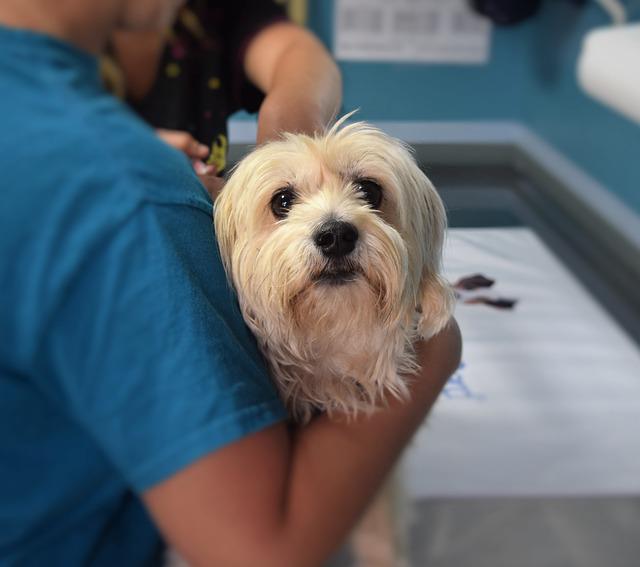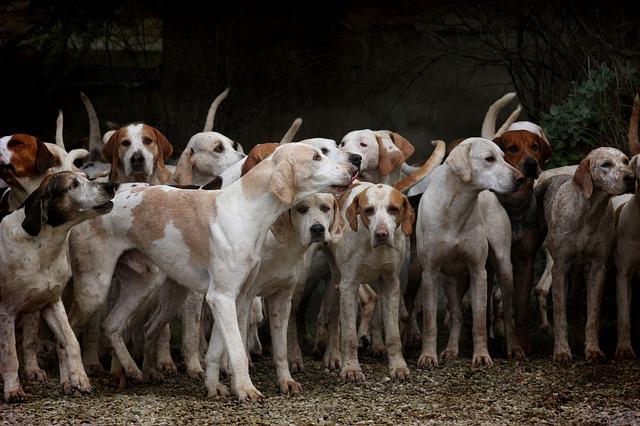One of the scariest sights for any and every dog parent is seeing their furry little babies in pain. Unfortunately, dogs are prone to certain diseases and health conditions – while some are minor, others are major concerns. So, it is important for pet parents to know the most common dog diseases. The sooner they know and identify the diseases, the better the chances of treatment and recovery. Wondering, what are the most common diseases in dogs?
Here are the top 8 most common dog diseases:
Rabies
Rabies is a common viral disease in dogs that affects the brain and nervous system of humans and animals, including dogs. The virus is transmitted from an infected animal to another through saliva or tissue. It can also be spread by an infected animal’s brain tissue if it makes contact with a human’s bare skin or mucous membranes.

Symptoms of Rabies
Symptoms of rabies in dogs may include fever, excitability, excessive salivation and panting, loss of appetite, breathing problems, hypersalivation and difficulty swallowing, seizures, and paralysis. If left untreated, the virus can spread throughout the body and cause death within weeks of symptoms appearing.
The effects of rabies vary depending on the animal and the severity of the infection. Dogs that have been bitten by a rabid animal may have no symptoms at all, or they may develop a fever and start shaking their head uncontrollably. Dogs that have developed signs of rabies after being exposed to the disease but before showing any symptoms are still considered carriers of the virus.
There are two types of rabies: acute and post-exposure. In an acute case, dogs show symptoms within days or weeks after being exposed to the virus. Pet owners need to seek immediate medical care after exposure to prevent severe brain damage or even death.
Rabies Treatment
If your dog shows any signs of rabies, call your veterinarian immediately so they can begin treatment with rabies immunoglobulin (RIG). RIG is usually administered by injection into a vein but can also be given orally or through a subcutaneous implantation device.
If you think your pet might have been exposed to rabies, call your vet immediately!
Canine Distemper
Canine distemper is a highly contagious viral disease that affects dogs.

Symptoms of Canine Distemper
Symptoms of distemper include fever, vomiting, diarrhea, lack of appetite, loss of hair and weight, and decreased activity. Affected dogs may also experience seizures.
Distemper is spread by contact with infected dogs and objects such as water bowls that have been contaminated with saliva or nose-to-nose contact with an infected dog. It can also be transmitted through air-born particles.
If your dog is showing signs of distemper, you should isolate them until the disease has run its course. This can be done by confining them to their cage or crate while you are away from home for more than 24 hours at a time. If you take your dog out into public spaces while they’re still sick, they could spread the disease to other dogs and people. Dogs who have recovered from distemper are considered carriers for life; however, there’s no need to keep them quarantined if you don’t think they’ll come into contact with any other animals or humans again during this period of recovery.”
Canine Distemper Treatment
The best way to prevent canine distemper is to vaccinate your dog as soon as possible after exposure. If you have recently purchased a puppy from a breeder or pet store, ask for proof of vaccination before you take him home.
If your dog has distemper, there are two options for treatment: medication alone or medication and supportive care. The latter option is more expensive but it’s important to remember that it will not cure the disease itself—it will only help your dog recover from its symptoms.
Also Read: 5 Most Common Health Problems of Dogs in Summer – Their Precaution and Home Remedies!
Kennel Cough
Kennel cough is a respiratory infection both viral and bacterial that causes inflammation in a dog’s voice box and windpipe. It can clear up on its own, but it is highly infectious to other dogs.

Kennel Cough Symptoms
Symptoms like constant honking sounds, gasping, coughing, fever and nasal discharge can be found.
Causes of Kennel cough can be aerosols in the air, and germs on food. Also, poor air circulation can cause Kennel cough. Young and unvaccinated dogs are at a higher risk.
The best way to avoid kennel cough is to avoid being exposed.
Vaccines are also available for several agents implicated in kennel cough, including parainfluenza, Bordetella, and adenovirus-2.
Inquire with your veterinarian about whether and how frequently these are recommended.
Vaccinations are ineffective if a dog has already contracted the virus.
Treatment of Kennel Cough in Dogs
Dogs suffering from kennel cough should be separated from other dogs.
A humidifier, vaporizer, or shower steam can help soothe irritated breathing passages.
Keep your dog away from cigarette smoke and other noxious, irritating fumes.
Cough suppressant or antimicrobial medication may be prescribed.
If your dog pulls on her collar while being walked, switch to a harness until the coughing stops.
Supportive care is critical; ensure that your dog is eating, drinking, and living in a stress-free -environment.
Ringworm
Ringworm is one of the most common dog diseases and it is caused by a fungus that infects the skin, hair, and nails rather than a worm. This highly contagious disease can cause patchy hair loss in dogs and can spread to other animals—and even humans.

Puppies under a year old are the most vulnerable to infection.
Malnourished, immunocompromised, and stressed dogs are also more susceptible.
Ringworm can spread quickly in kennels, shelters, and other places where there are many dogs in close quarters.
Because infection can potentially spread throughout a dog’s body and infect other animals and people, you must consult your veterinarian if your pet exhibits any signs of a skin problem.
Ringworm Treatment in Dogs
Ringworm treatment is determined by the severity of the infection.
- A veterinarian may recommend a shampoo or ointment containing a fungus-killing medication.
- Oral medications are sometimes required.
- It is critical to treat your dog for as long as your veterinarian recommends.
There is no guarantee that reinfection will not occur
Heartworm
Heartworms are parasitic worms that live and grow in the heart and lungs of animals. Heartworm infestations can take years to develop before your dog exhibits any serious symptoms, at which point the condition is often fatal.

Heartworm Symptoms in Dogs
Symptoms in dogs vary depending on the prevalence and stage of life of the heartworms. Also, the dog may lose interest in exercise, pant more, and their breathing may become labored or wheezy. The dog may experience abdominal swelling, which is a common symptom of advanced heartworm infestation. If your dog’s stomach is swollen and sore, consult a veterinarian.
X-rays and blood tests are used to diagnose heartworms. Heartworms are found primarily on the right side of the heart and in the lungs. An x-ray will reveal an unusually large heart, particularly the right side, which has grown to accommodate the expanding infestation.
Treatment of Heartworm in Dogs
The standard treatment involves a series of injections to kill the heartworms systematically, beginning with the most immature worms and progressing to the adult worms.
Following treatment, the dog must spend several months indoors and away from other animals. Walks and other forms of exercise should be avoided during this time because the heart needs to rest.
Your dogs will be much less susceptible to Heartworm infection if you keep them away from mosquito-infested areas such as wetlands, bushland, and places with stagnant and dirty water
Canine Parvovirus
Canine parvovirus is one of the most common diseases in dogs. It is a viral infection that can cause diarrhea, vomiting, and lethargy in dogs. It is typically a self-limiting condition and will not require treatment.

Symptoms of Canine Parvovirus in Dogs
However, if your dog has symptoms of dehydration or if you suspect that they have a more serious condition, it is important to seek veterinary care immediately.
Canine parvovirus is a very serious disease that can cause severe illness and even death in dogs. Parvo is spread by contact with feces, so it’s important to keep your dog away from other dogs until you know they’ve been vaccinated.
Canine Parvovirus Treatment
If your dog has been exposed to parvo, it should be vaccinated immediately with a series of three injections over two weeks. The first injection will be given within 12 hours of exposure; the second injection should be administered within 36 hours after the first, and the third should be administered within 72 hours after the first.
After treatment for parvo, you’ll need to make sure your dog stays hydrated by drinking plenty of water and offering them food every day. You’ll also want to check their stool for any signs of diarrhea or vomiting as well as checking for any dehydration. If any of these symptoms occur, seek veterinary care immediately!
Heatstroke
Dogs are susceptible to heatstroke, which is caused by a loss of body fluids, electrolytes, and water. This can lead to damage to the brain, heart, and other organs. You must monitor your dog during periods of hot weather. Heatstroke is a condition that occurs when your dog’s body temperature rises to dangerous levels.

Heatstroke Symptoms in Dogs
Symptoms of heatstroke include:
– Increased heart rate and breathing rate
– Hot, dry skin and mucous membranes
– Loss of consciousness and/or seizures (if the dog is conscious)
Treatment of Heat Stroke in Dogs
If you suspect your dog is suffering from heat stroke, the best thing you can do is hose him down with cool or tepid water and turn on the air conditioning in your car while driving to a veterinary hospital.
Call the veterinarian’s office as soon as possible so that they can prepare for your arrival
Leptospirosis
Leptospirosis is a bacterial infection that can affect dogs. It is usually transmitted by contact with infected animals or their urine, but it can also be spread through water by runoff from contaminated land.

Symptoms of Leptospirosis
Symptoms of leptospirosis include sudden vomiting, diarrhea, fever, and muscle aches. If left untreated, the disease can lead to liver failure and death.
Leptospirosis is a bacterial disease that can affect dogs, ferrets, and other carnivores. The disease is spread by contact with infected urine, debris, or feces. It’s often transmitted by ingestion of contaminated water or food.
Leptospirosis Treatment in Dogs
If you suspect your dog may have Leptospirosis, take them to a vet immediately. Your vet will likely treat Leptospirosis with antibiotics and fluids if they think it’s necessary. In severe cases, your dog might need to be hospitalized for treatment.
Dog owners shouldn’t let their pets drink untreated surface water or swim in lakes or ponds without cleaning them first!
These are the most common dog diseases, for more info on dog and cat health, explore – Animal Health





